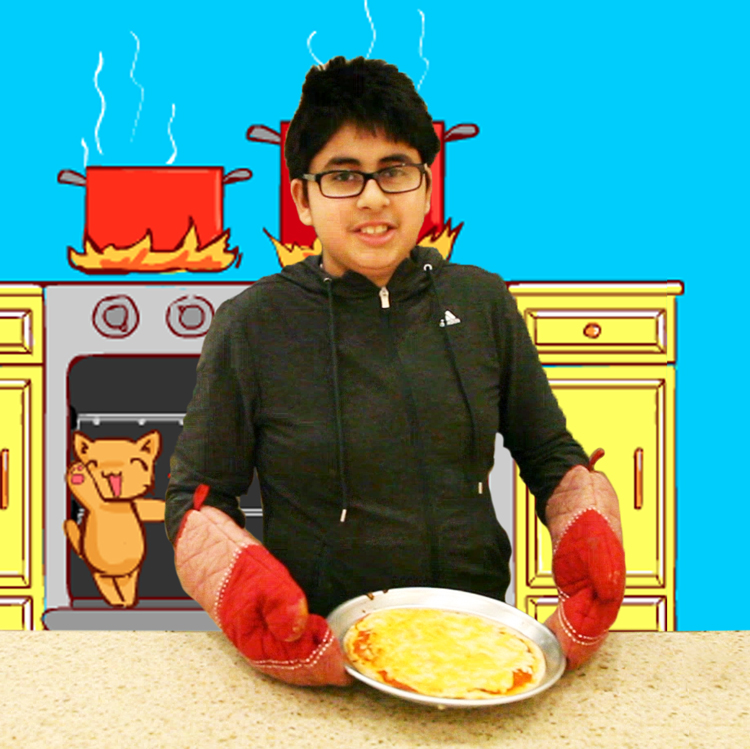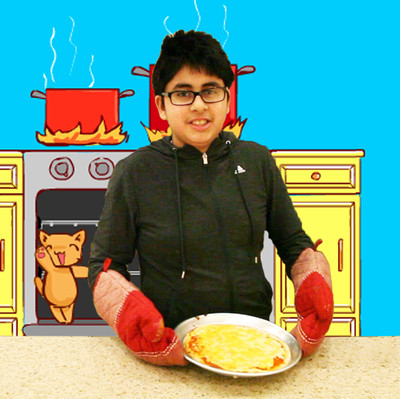The Dilemma: Teaching Niam Academics or Daily Living Skills? How Much Is Enough?
Posted by Nina Jain on 2016 Feb 9th

With only 24 hours a day to teach Niam to be independent and prepare himself for adulthood, the decision to decide what to teach can be challenging. A student in the regular school stream attends school on average for 6.5 hours. This includes lunch breaks, transition times, and interaction time within classes. The amount of learning time may only be 4.5 to 5 hours a day. Niam began ABA "Applied Behaviour Analysis" therapy at the age of 2, learning 7 hours a day and 2 hours in the evening. This was topped off with additional hours of putting on clothing, brushing teeth, taking a bath/shower. Every activity was a chance to learn skills from speech , auditory processing or overcoming sensory issues.
Niam is 13 today. His literacy levels are improving everyday. He is independent in many areas from personal hygiene ,cooking to doing his own laundry. His speech and comprehension of spoken language is not of other children his age. Niam will not willingly engage in intense therapy any longer. He has discovered life. His days are filled with academics, sports and painting. He has developed passions, hobbies and desires. ABA therapy does not teach a child to explore his world and, discover their own passions. Niam's new world is a result of life experiences and opportunities.
The learning hours for Niam have decreased within the 24 day. Left with a small amount of learning time, and as Niam ages into adulthood, the question arises what do we teach? How much time do we spend on each skill? Which skill is important? What do we drop? What is the optimal mix of teaching between speech, literacy and independent skills? All very difficult questions. No parent wants to make a mistake.
Studies show independent living for adults with ASD is low with reports indicating that less than 5% live on their own. Many individuals with ASD require 24-hour care (45%) and live with their parents (45%). Reports indicate that very few adults (less than 10%) with ASD have necessary independent day-to-day household skills such as laundry, chores, and meal preparation.
The data should not be ignored. It is imperative to teach our children daily living skills. Parents are ageing and adequate housing does not exist for this vulnerable segment of society. Unfortunately, the Ministry of Education has not recognized these staggering statistics or have implemented policies for the Tsunami looming around the corners as these kids age into adulthood with no caregivers. A standardized high school curriculum around teaching functional skills and vocational skills training is an imperative. Expecting teachers to create the curriculum on class by class basis is unrealistic. The attitude of ignoring will have enormous economic consequences for present and future generations.
With very little choice, as a mom, I created a standardized curriculum for Niam including a learning to cook modules in three literacy levels accompanied with cooking programs that focus on literacy and language development. I combined independent daily living skills with literacy and language for a number of reason.
1. There is limited teaching time in the day.
2. Cooking can be used to teach academics such as sequencing, vocabulary development, story telling, answering questions, math and so much more.
On the Able2learn website you will find many recipes and resources. Education is an inalienable right. All children should have the same opportunities. Every child should have the opportunity to reach their full potential.

